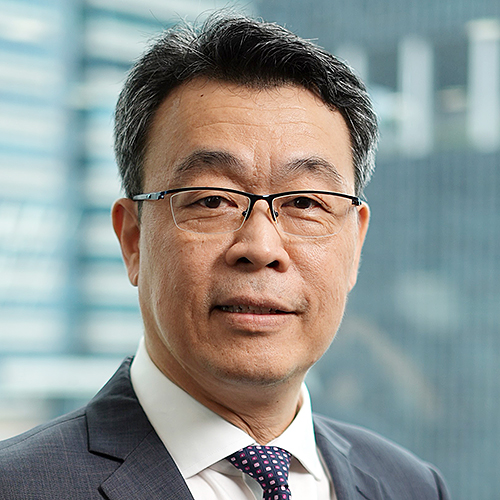.jpg)
Over the last several years, the role of CFOs and treasurers has shifted significantly. From simply managing finances and transactional flows, there is now an expectation for treasury departments to be more strategic in solving operational inefficiencies within their companies. According to Asset Benchmark Research data, close to half of the CFOs and treasurers surveyed in Asia hope to see their treasury centre become strategic in nature in the next three years.
An essential element for supporting the redefined treasury role is financial technology (fintech) and digitalization which help CFOs and treasurers manage their accounts. That was a point of discussion at The Asset Events and BNP Paribas’ recent panel on the fintech ecosystem in Asia where a group of experts shared their views on how modern-day treasury departments should approach new technology.
As a leading Asian logistics corporate based in Hong Kong, Kerry Logistics has been open to embracing technology to improve their internal processes. That’s according to Eddie Mak, group treasurer at Kerry Logistics, who says, “We are trying to make use of more technology within our treasury operations to supplement the workflow. I think we are at 3 out 5 when it comes to technology. We are in the middle because we have acquired a lot of companies. System integration needs to be accomplished first before you can actually unify your treasury operations.”
Using technology to solve a particular pain point rather than randomly applying a buzzword technology such as machine learning or big data is an approach companies like Kerry Logistics are adopting with new technology. “If the technology concept can help to control risk and enhance efficiencies then the management will buy into it,” shares Mak.
Actively aiming to facilitate the proper combination of new technological solutions are banks which in the last couple of years have become more open to working with and even investing in start-up fintech companies. BNP Paribas, for instance, last year announced a partnership with Cashforce where the bank’s customers can use the platform to carry out automated cash flow forecasting as ERP systems and financial data are consolidated into one portal. Other noticeable fintech partnerships for the bank include its work with Duco Cube, a platform that can validate and reconcile data in the cloud, and Confirmation.com, a digital communication channel, to facilitate a faster response time.
“In Europe with this open banking evolution, banks are now forced to expose their data to third-party providers. We are now discussing with a few big names to offer a solution like a request to pay,” explains Vincent Marchand, head of cash management fintech lab at BNP Paribas.
Similar to Europe, Asia is seeing an increase in third-party providers such as payment companies looking to work more closely with banks to offer better solutions to treasurers and CFOs. For instance in China, LianLian Pay has slowly established itself as the go-to provider for Chinese merchants to carry out cross-border collections.
“We plan to spend around 3 billion renminbi to service the 1 million cross-border Chinese merchants,” says Li Na, head of strategic and banking partnership at LianLian Pay. “We help these Chinese sellers get their money back from the overseas e-marketplaces to their Chinese bank accounts.” The payments company is supported by several banks around the world that help transfer money back to the local bank accounts of their merchant clients.
Helping merchants with their collections and reconsolidation is something that AsiaPay is also doing amid an increased collaborative environment as they believe that the drive from consumers to go cashless will play a positive role in their business.
“There is no doubt that the technology is here today. It’s just whether there’s a rationale for the merchant to process a digital transaction. Is there a justification for the effort or manpower for reconciling the cash and taking on payment risk if that cash is lost?” questions Joseph Chan, founder and CEO of AsiaPay. “Second is the user payment experience when interacting with the merchant and third is how best to upgrade all the frontend systems to interact with the backend systems.”
The growing convenience of going cashless is something that financial regulators around the world are trying to encourage to drive transparency in the financial system. In Hong Kong, the HKMA (Hong Kong Monetary Authority) just last year launched the Faster Payment System (FPS) which allows individuals to instantly make payments across different banks and e-wallet providers.
Primarily used for retail transfers, the system has a lot of potential. “We have around 2 million registrations on the FPS which is pretty good compared to other jurisdictions. Our next phase will be allowing merchants to accept this form of payment,” explains Nelson Chow, chief fintech officer, Fintech Facilitation Office at HKMA.
Though still in its early stages of development and rollout, several companies such as AIA have started using FPS technology to improve their collection process and customer experience to allow clients to pay their premiums.
While these exciting developments such as new payment infrastructures, third-party platforms and banks showcasing fintech solutions might seem attractive to CFOs and treasurers, the fundamental question is whether it is applicable to their particular business.
“Around 30-40% of our collection is electronic. Some SMEs want to write cheques because they have better cash flow control. Sometimes we have no control as when customers want to issue a cheque, we have to receive the cheque. That is our customer’s choice,” highlights Mak.
Nevertheless, we are bound to see more corporate cases in the future as consumer habits can dramatically change over time. One just has to look at China to see how rapidly payment practices have evolved. “In the B2B side Europe is moving quite nicely regarding instant payments but if you talk about e-payments, Asia is definitely way ahead,” says Marchand.





.jpg)
.jpg)


